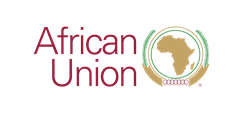The Department of Health, Humanitarian Affairs and Social Development of the African Union Commission (AUC), in collaboration with the United Nations Population Fund (UNFPA) and the United Nations Economic Commission for Africa (UNECA) is organizing the African Population Experts Committee (APEC) and Ministers in Charge of Population Meetings on the 10-year Review of the Addis Ababa Declaration on Population and Development (AADPD) in Lusaka, Zambia from 7-10 November 2023.
The 10-year review aims at taking stock of progress since the 5-year review and identify best practices that have advanced the implementation of the ICPD Programme of Action within the context of SDGs and Africa Agenda 2063. It will identify challenges that are hindering progress and put forth recommendations for each pillar of the AADPD based on the findings of national review reports.
The Report of the 10-Year Review of the AADPD will be presented at the global review, taking place during the 57th Session of the Commission on Population and Development (CPD) in April of 2024 under the theme “Assessing the status of implementation of the Programme of Action of the International Conference on Population and Development”.
During the opening ceremony Professor Julio RAKOTONIRINA, Director of Health and Humanitarian Affairs Directorate of the African Union Commission (AUC) delivered opening remarks on behalf of Her Excellency H.E. Amb. Minata SAMATE CESSOUMA, Commissioner for Health, Humanitarian Affairs and Social Development (HHS). The Director expressed the deep gratitude to the Republic of Zambia for the commitment in hosting and facilitating the event and to the United Nations Economic Commission for Africa and the United Nations Population Fund for working hand in hand with AU Commission to make this process a success, as requested by the 4th Specialized Technical Committee on Health, Population and Drug Control (STC-HPDC-4) in 2022.
Prof Julio RAKOTONIRINA noted that the development of the Addis Ababa Declaration in 2014, coincided with development of Africa’s transformative Agenda 2063- The Africa We Want. He emphasized the need for cooperation and collaboration with all stakeholders to implement the commitments of AADPD in line with Aspirations of the Agenda 2063. “It was very clear to the African Union Commission that changing the lives of our people was a collective agenda. This required not only local effort, leadership and investment, but also learning, collaboration and partnership with the global community through a common agenda and approaches,” noted Prof Julio RAKOTONIRINA.
Addressing the opening ceremony, Mrs. Lois Mulube, Acting Permanent Secretary, Planning&Administration Ministry of Finance and National Planning, Republic of Zambia noted the AU significant contributions to the advancement of population and development in Africa. “Over the past 10 years, AU Commission has made significant contributions to the advancement of population and development in Africa, through research, publications, workshops, training, and advocacy activities. Some of the notable achievements include: Publishing of the African Population Report, which analyses the demographic trends and challenges in Africa and their impact on development; Development of the African Population Policy Framework, which guides the formulation and implementation of population policies and programs in Africa in line with the agenda 2063 and the SDGs; Establishment of the African Population Data Platform, which offers a user-friendly and interactive online portal for accessing and sharing data and information on population and development indicators in Africa; Promoting the African Population Dialogue, which facilitates the exchange of knowledge, experiences, and best practices on the emerging and priority population issues in Africa among various stakeholders,” said Mrs. Lois Mulube. She concluded by urging Member States to strengthen partnerships and collaboration among the APEC members and other stakeholders to achieve common goals and objectives; advocate for and promote population and development issues in Africa at the national, regional, and global levels.
Mr. Saturnin Epié Chief, UNFPA Representation Office to AU and ECA applauded the decision of the Specialized Technical Committee on Health Population Drugs and Control in May 2022, which approved the review process and enabled national level reviews of progress made in the implementing the 88 commitments across the 6 pillars of the of the Addis Ababa Declaration on Population and Development (AADPD). “We at UNFPA are confident that the APEC will come up with evidence-based and far-reaching recommendations, to help ensure future fit policies and programmes for a sustained implementation of the AADPD in line with the acceleration towards the sustainable development goals (SDGs) by 2030 and Agenda 2063,” concluded Mr. Saturnin Epié.
Mr. Saurabh Sinha, Chief, Social Policy Section, Gender, Poverty and Social Policy Division, Economic Commission for Africa underlined that the Addis Ababa Declaration provided a unique opportunity to forge a regional impetus to scale up initiatives to harness the demographic dividend and contribute to the follow-up and review of the 2030 Agenda for Sustainable Development and Agenda 2063 our continental framework. “Through the findings and recommendations of the report, we would like to put forward strong proposals to our ministers that can inspire action and achieve meaningful results particularly for marginalised and disadvantaged groups. Continued progress toward implementing the Addis Ababa Declaration is critical for the achievement of the 2030 Agenda for Sustainable Development and Agenda 2063. Sustained regional commitment to the Declaration is necessary to ensure that the gains of the past years are not squandered,” concluded Mr. Saurabh Sinha.
During the Experts’ session, the AU Member States will deliberate on the AADPD Continental Report that comprises a total of 88 commitments grouped under six pillars: Dignity and Equality, Health, Place and Mobility, Governance, Data and Statistics, and Partnership and International Cooperation.
Distributed by APO Group on behalf of African Union (AU).
